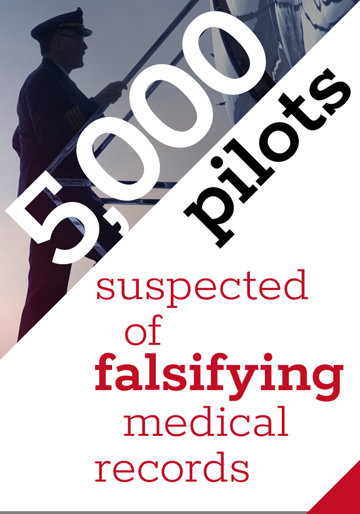On September 5, off-duty Alaska Airlines pilot Joseph Emerson was convicted of 83 counts of recklessly endangering 84 passengers—including 11 children—and four crew aboard San Francisco-bound Horizon Airlines Flight 2059. Riding in the cockpit jump seat on October 22, 2023, Emerson suddenly tried to shut off the engines of the jet mid-flight. The pilot and copilot wrestled him away from the controls, diverted the aircraft and landed in Portland, Oregon.
Emerson, who was not piloting the plane, admitted he had taken psilocybin—magic mushrooms—for the first time 48 hours earlier and could still be under its influence.
In those moments, pilots must think fast, act faster and carry the weight of every life on board with absolute clarity.
“I didn’t feel OK,” he said. “I pulled both emergency shut-off handles because I thought I was dreaming and I just [wanted to] wake up.”
Flight attendants took him to the back of the plane. “You need to cuff me right now or it’s going to be bad,” he pleaded. Flex handcuffs were placed around his wrists. Later, he tried to grab an emergency exit handle before being stopped.
“I messed everything up,” he told the flight attendant standing by.
Multnomah County Circuit Court Judge Cheryl Albrecht sentenced Emerson to 50 days in jail, 664 hours of community service and five years of probation. He also faces federal charges carrying a maximum sentence of 20 years in prison.
The case casts a harsh light on the Federal Aviation Administration’s loophole-ridden approach to screening pilots for drug use. Beginning in 2019 and intensifying in 2023, federal authorities investigated nearly 5,000 pilots suspected of falsifying medical records that could have grounded them.
And though pilots undergo regular FAA medical exams, those tests are often cursory. Much of the system relies on self-reporting. Among the health issues on the form to fill out is this one: “Substance dependence or failed a drug test ever; or substance abuse or use of illegal substance in the last two years.” An honest “yes” answer can mean losing one’s job.
Hundreds of commercial pilots failed to disclose disability benefits for conditions that might have disqualified them. The result: a paper system that relies on trust, with little verification.

When a pilot takes the controls, they’re commanding a massive, high-speed vessel through an environment that can change in a heartbeat. A sudden storm, a mechanical glitch, a crowded sky or even fatigue can turn routine into crisis. In those moments, pilots must think fast, act faster and carry the weight of every life on board with absolute clarity. Any impairment—anything that numbs reaction time for even a split second—puts hundreds of lives at risk.
And yet, the numbers are grim. The National Transportation Safety Board (NTSB) found drugs in the systems of 23 percent of pilots killed in crashes in 2014. By 2020, that figure had risen to 28 percent. The increases included controlled substances, illegal drugs and THC from marijuana. In 2020, the NTSB urged the FAA to explicitly warn pilots that marijuana use is prohibited, calling it “a safety hazard that hasn’t been effectively addressed.”
That was five years ago. But the problem of substance abuse in commercial aviation is still on the table.
A more recent study applied national substance abuse rates—13 to 15 percent of adults—to America’s 48,750 active commercial pilots. The math, they concluded, suggests that between 6,300 and 7,300 pilots would meet diagnostic criteria for substance abuse.
So how many are actually identified? Almost none. Just 0.5 percent of pilots fail mandated annual screenings—a number wildly below the expected prevalence. Detection depends on random testing, self-reporting, or the rare intervention of family, friends or law enforcement.
As the study bluntly notes: “This observation raises questions such as the effectiveness of screening procedures and the quality of data and data reporting.”
Joseph Emerson took mushrooms once. He lives with his wife and young children in the Bay Area community of Pleasant Hill and—by all accounts—is quite well-liked. His lawyer described him as “a caring father, a loving husband, and a skilled aviator who is supported and loved by a vast network of friends, family and colleagues. He would never intentionally hurt another person.”
Yet he could have destroyed the lives and families of nearly 100 souls—unintentionally.
Luckily, no one was hurt on Flight 2059. “What happened was wrong and should not have happened, and I bear the responsibility for that,” Joseph Emerson said.
But the responsibility does not end with him. Airlines and the FAA cannot continue to rely on paper forms and wishful trust while each day millions of lives are carried through America’s skies. The next time, a pilot’s lapse may not end with restraint and diversion, but with grieving families on the ground.
If that preventable tragedy happens, the FAA and the airline will be left with no choice but to tell them—like Emerson told the flight attendant—“We messed everything up.”






















